We find ourselves in an unprecedented situation that almost feels like we are in a world war. The special economic package of Rs 20 lakh crore (about $266 billion) —10% of India’s GDP — towards the making of an ‘Atmanirbhar Bharat’ (self-reliant India) stands out.
It reflects GoI’s commitment to the poor, focusing as it does on empowering poor migrant labour, and micro, small and medium enterprises (MSMEs), other vulnerable sections, and to release their entrepreneurial spirits through innovative interventions.
Not Clockwork Movement
Much of the recent criticism on the migrant labour crisis not only seeks to deepen existing pre-Covid-19 fault lines, but is also motivated, misguided and reflective of a poor understanding of the challenge being confronted. Census 2011 estimated the number of internal (inter- and intra-state) migrants at 177 million. This number has grown substantially since.
At least 10 million could be regarded as engaged in precarious or contract employment. All migrant workers are part of a complicated migrant-labour matrix involving push and pull factors for migration, families, communities, employers, state governments, transport service providers and other stakeholders stretched over the country’s variegated geometry.
Any decision regarding their movement to and from their places of work to their places of origin could not have been simple. It involves multiple choices, grave consequences and unpredictable multiplier effects. The Narendra Modi government has, therefore, consistently engaged with state governments in the rollout of successive phases of the lockdown. Civil society and philanthropy have also been doing their part.
Even in the initial economic stimulus announced by finance minister Nirmala Sitharaman on March 26, the Pradhan Mantri Garib Kalyan Yojana (PMGKY) package emphasised on the poor and vulnerable. Under PMGKY, over Rs 18,000 crore has been disbursed to 11 crore farmers, and cash transfers made to 20.5 crore women through Mahila Jan Dhan accounts. 48 lakh metric tonnes of grain has been disbursed to 80 crore beneficiaries; focused support of Rs 3,948.6 crore worth has been given to 2.2 crore labourers, and 24% of monthly wages have been given for wageearners below Rs 15,000 a month (mostly migrant labourers) in businesses having less than 100 workers for the next three months.
The Rs 1,000 crore being released from the PM Cares fund to be put at the disposal of district collectors and municipal commissioners for providing food, shelter, medical treatment and transport to migrant workers is one of several initiatives currently being finalised.
GoI has been trying to persuade origin and destination states to send and receive migrants. It made thousands of buses available in coordination with the states, and special ‘Shramik trains’ have already transported 10 lakh migrant workers back home to their families by the deployment of over 800 trains.
A Democratic Viewpoint
The Vande Bharat Mission aims to evacuate about 1.9 lakh Indians stranded overseas. The criticism that deploying planes to evacuate those working and living abroad is some kind of luxury ignores the fact that GoI has obligations to all its citizens, here in India or abroad. Some critics have even demanded that returning passengers not be charged for airfares and quarantine.
They simply don’t understand that the viability of the airlines is also necessary for the long-term operationality of the airline sector. When India enforced a lockdown, it did not make any exceptions for the rich or the powerful.
It did not open flights, including charter flights, for any of incoming or outgoing citizens. Also, 520 charter flights have ferried over 875 tonnes of medical equipment and other essential items across India under the ‘Lifeline UDAN (Ude Desh ka Aam Nagarik)’ since March 26.
In these trying times, we can’t afford an approach of pitting one group against the other, and aggravating existing fault lines. Under ‘Atmanirbhar Bharat’, measures to infuse over `6 lakh crore of liquidity in our MSMEs, through various innovative mechanisms for non-banking financial companies (NBFCs), microfinance institutions (MFIs), housing finance companies (HFCs) and stressed companies have already been announced. These MSMEs are the engines of growth that employ the largest section of our unorganised sector workforce, including migrant labourers.
As the details of the package unveiled by the finance minister for MSMEs are absorbed, along with those specifically for migrant workers that were announced on Friday, the short-sightedness of critics will become more evident. GoI has envisioned reforms in agricultural supply chains, a rational tax system, simple and clear laws, capable human resource, and a strong financial system to develop India into a self-reliant yet outward-looking global economic powerhouse.
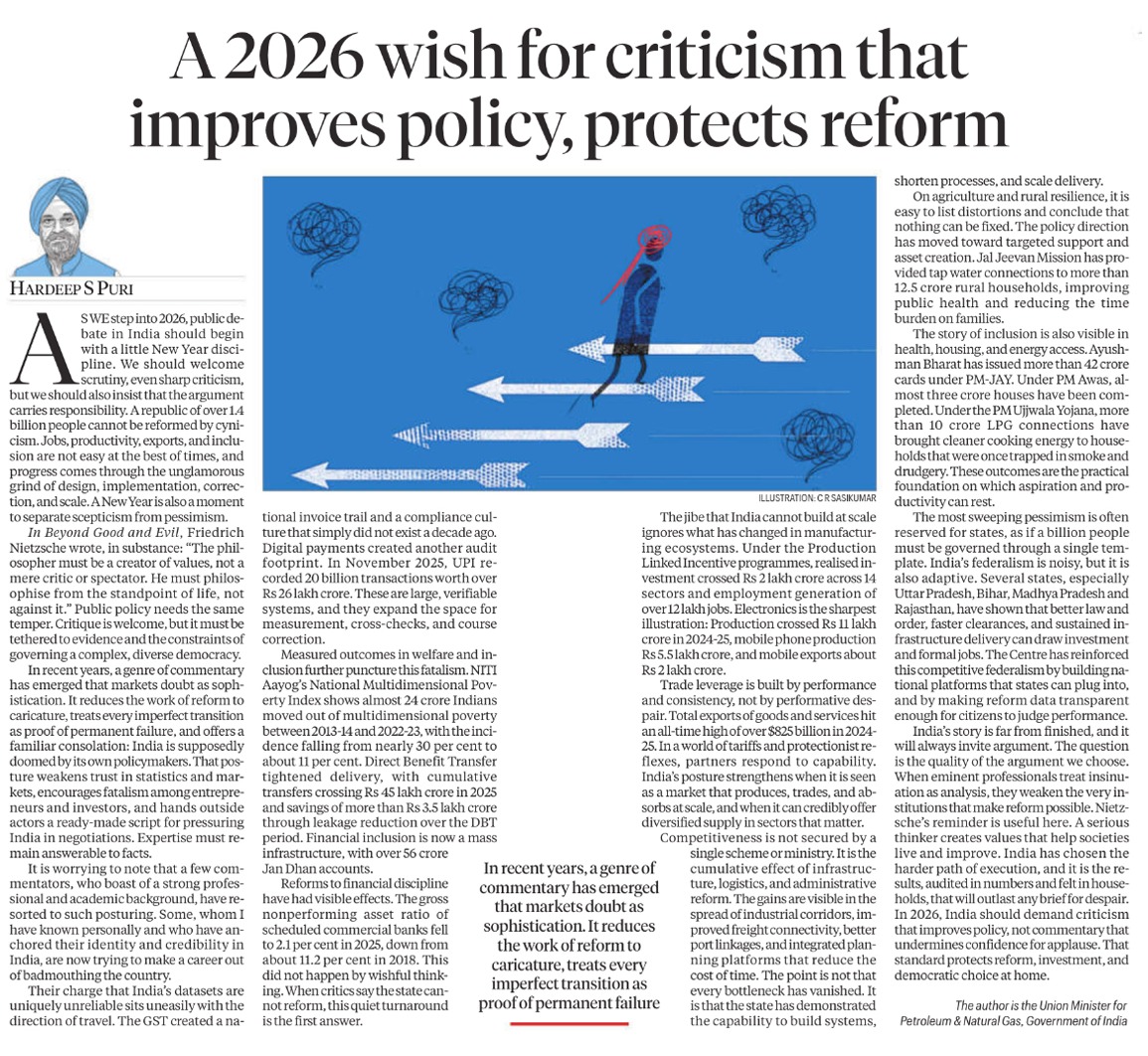
Our democracy benefits by criticism, but not by motivated fatalism by some “experts”, who seem more guided by their politics r...
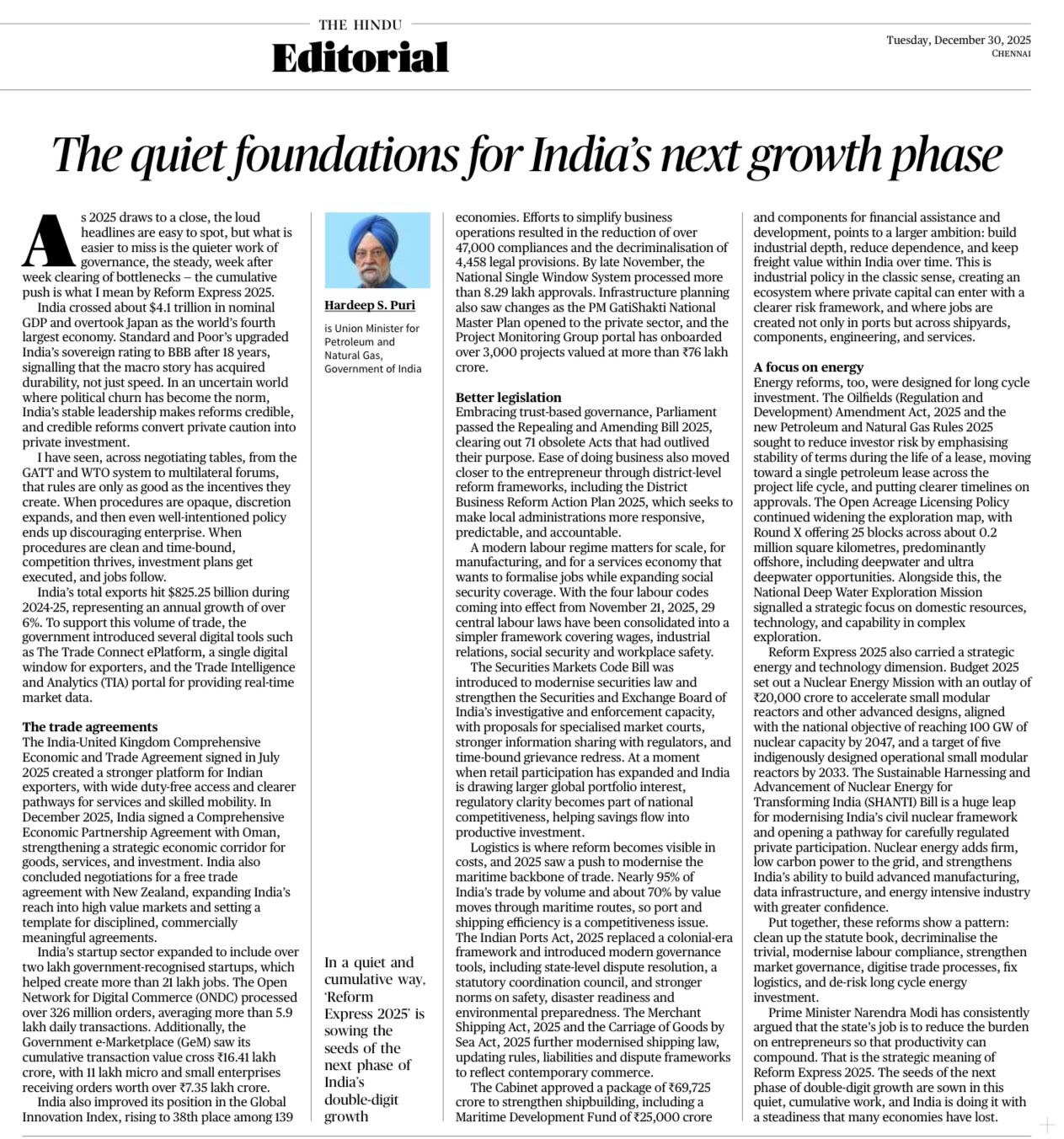
The quieter work of governance, the steady, week after week clearing of bottlenecks - this cumulative push is what I mean by Refo...
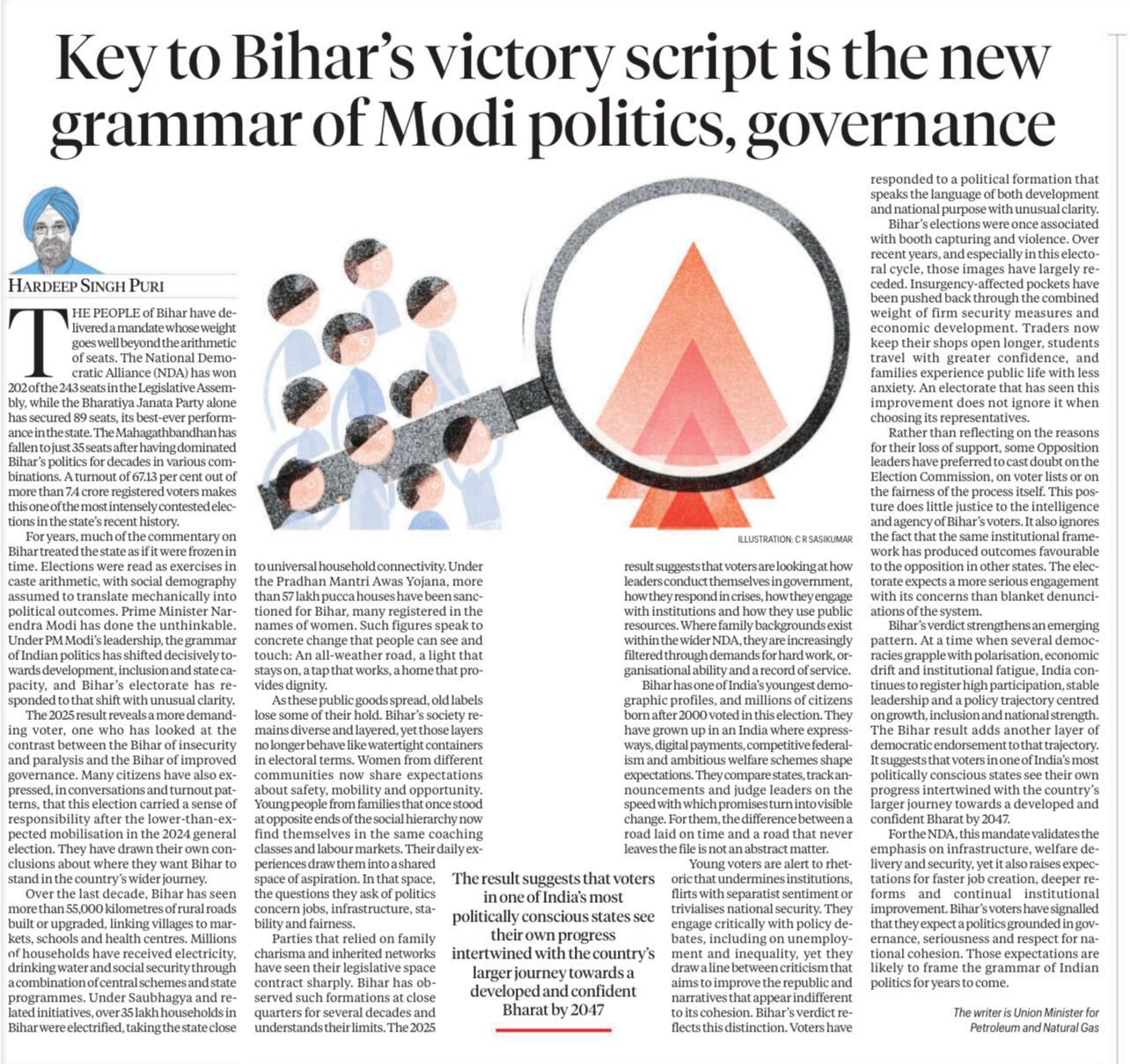
PM Sh Narendra Modi Ji has done the unthinkable in Bihar and it will change the grammar and lexicon of Indian politics for the ti...
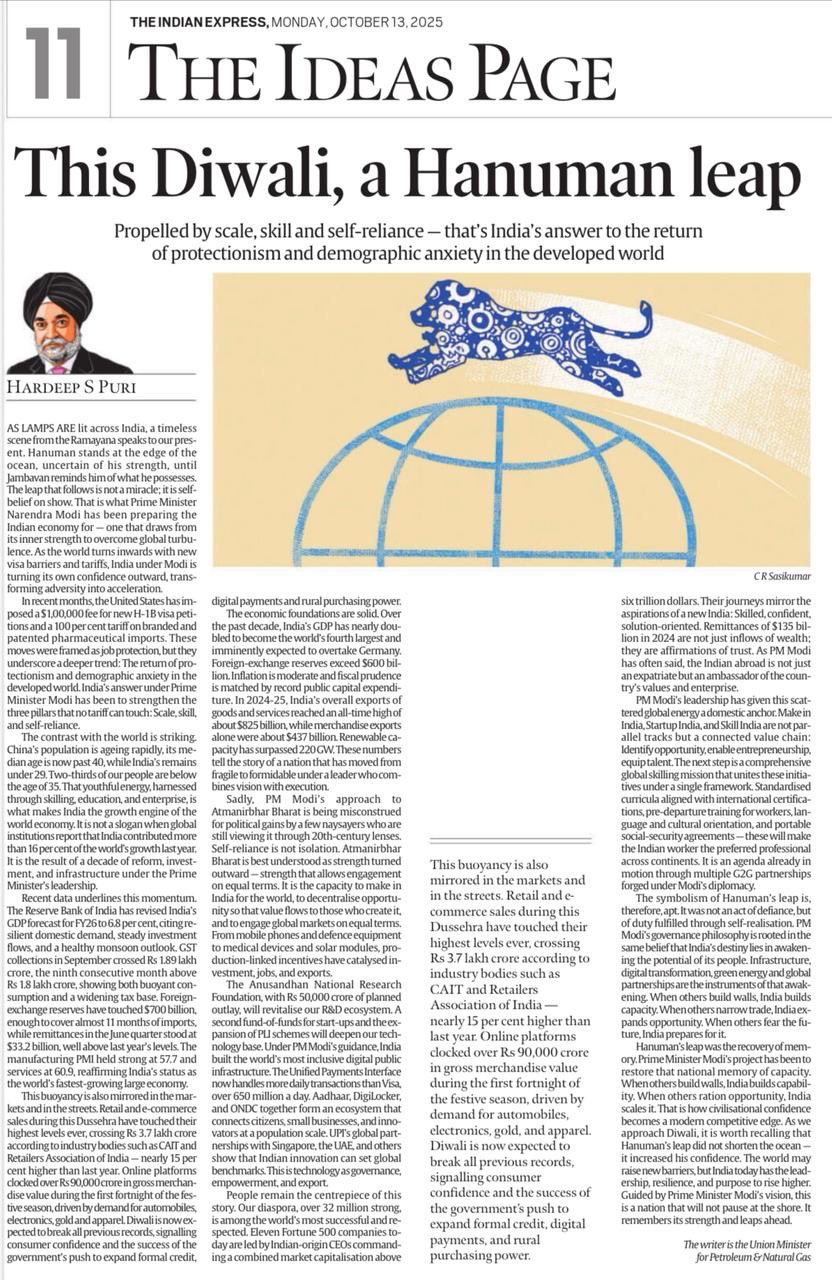
As the world passes through a period of geopolitical turmoil and uncertainty, India, under the visionary & decisive leadership of ...
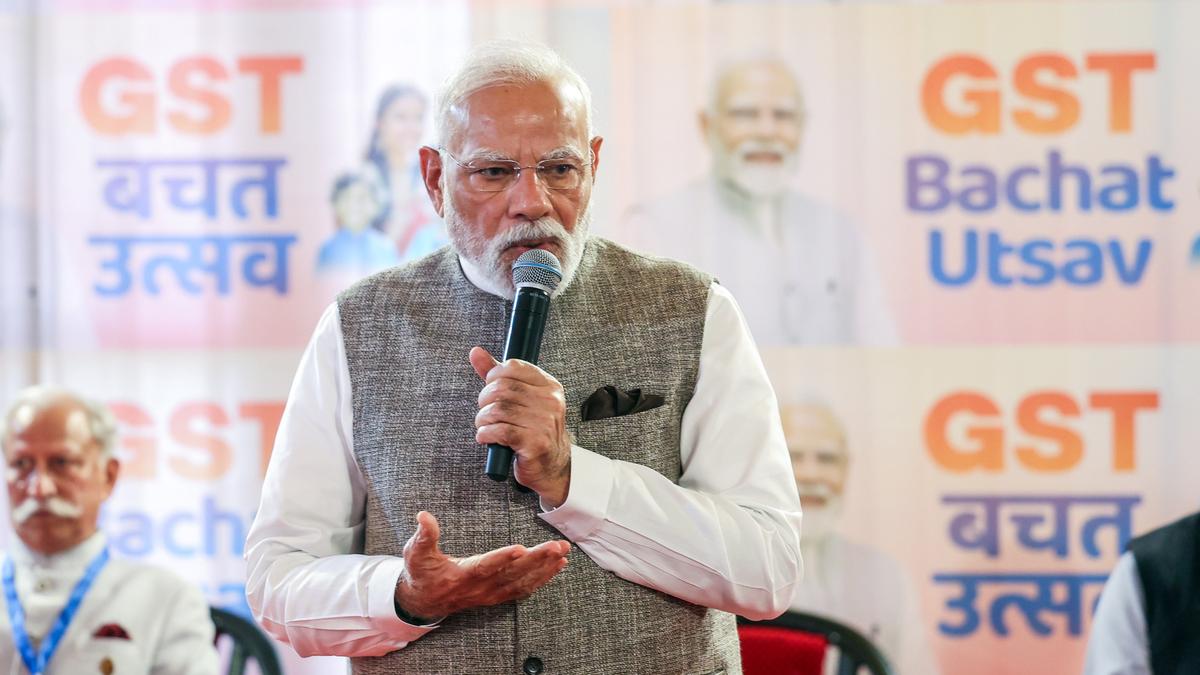
The Prime Minister’s professionalism and work ethic are what make the difference on the ground Praise has been showered on Pr...
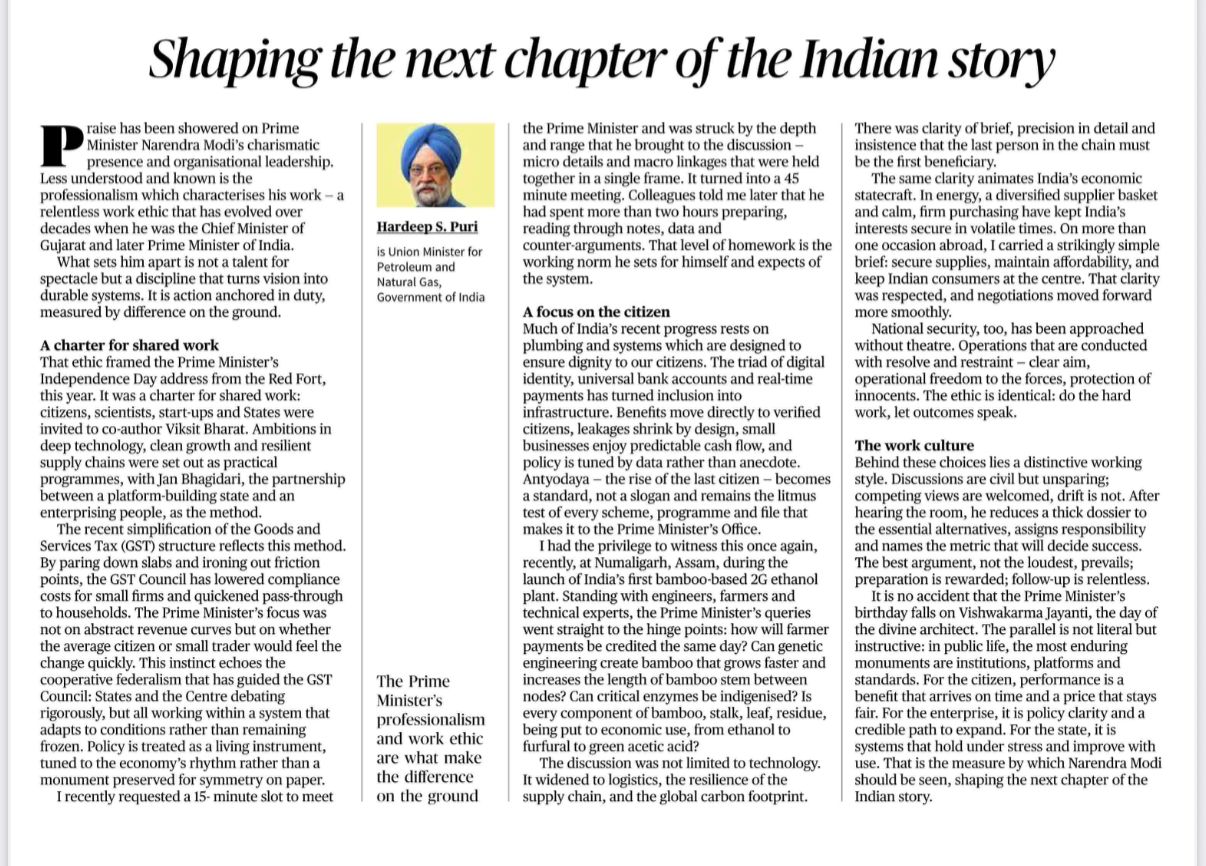
Shaping the next chapter of the Indian story!...
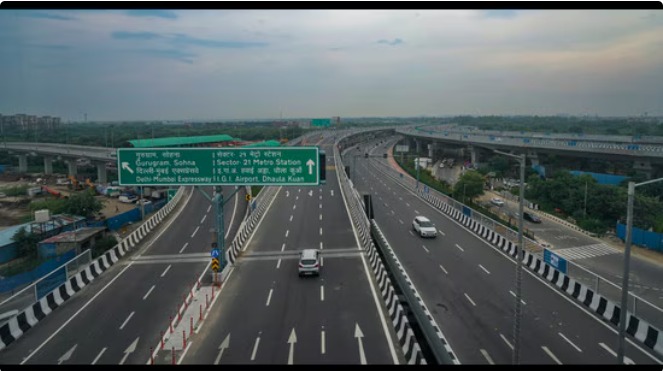
Indian cities are again on that path to being modern yet humane, ambitious yet inclusive, global in outlook yet rooted in our valu...

India’s fact-rich story of resilience, growth and energy security will silence the ‘global doubters’ who call it a ‘dead e...
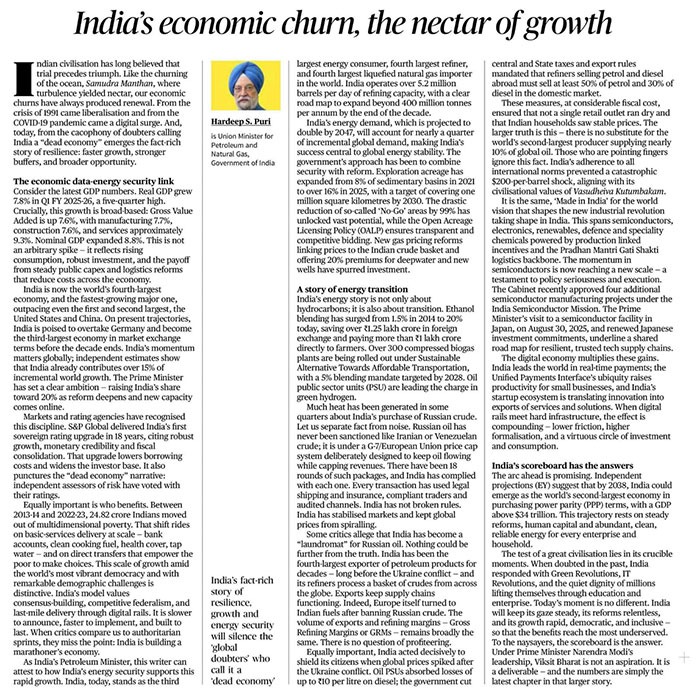
The test of a great civilisation lies in its crucible moments. When doubted in the past, India responded with Green Revolutions, I...